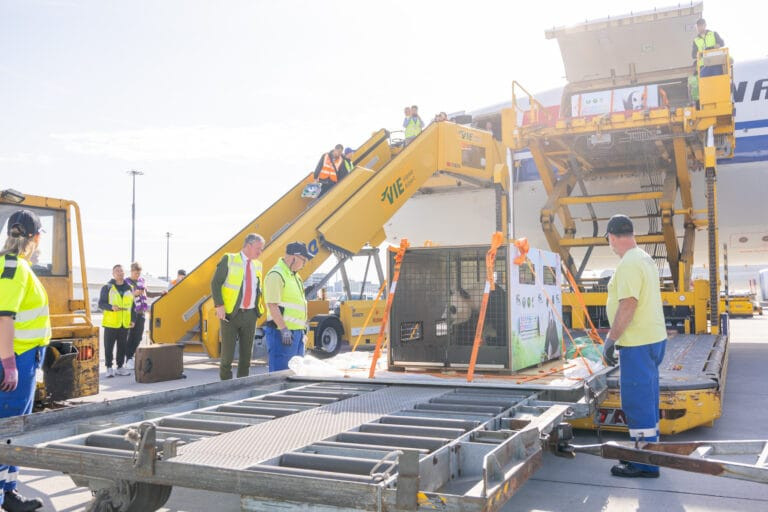Transporting rare and endangered animals demands an intricate web of environmental controls, international cooperation, and highly trained personnel. From arrival to departure, the specialised infrastructure and experienced operations ensure these sensitive passengers receive the best possible treatment.
“Vienna Airport is a certified EU entry point for live animals, equipped with an on-site veterinary border control facility,” Michael Zach, senior vice president ground handling & cargo operations, said. “We collaborate closely with all relevant stakeholders, including veterinary border control, customs authorities, freight forwarding companies, airlines, and ground handling agents.
“This integrated approach ensures compliance with international regulations like CITES. Direct communication and coordinated operations among all parties are key to the successful and seamless handling of such sensitive cargo.”
Separated zones shield animals from the typical stressors of airport environments, including high noise levels and fluctuating temperatures, aiming to provide an environment that mirrors the calm and safety of their home institutions. Additionally, on-site veterinary inspection facilities mean that animals don’t have to be transported off-premises for health checks, reducing transit time and physical handling.
Vienna Airport’s team uses a streamlined communications strategy that involves advance planning and real-time coordination. Detailed protocols are in place for each species, with site visits and collaborative meetings conducted prior to transportation to reduce risks and prepare all personnel.
“Every partner in the supply chain is well trained, emphasising meticulous planning and preparation,” Zach noted.
These partnerships don’t end at the airport gates. Coordination extends across borders, ensuring that the animal’s journey—from habitat to new home—is aligned with international health, safety, and welfare standards.
“We collaborate with zoologists, veterinarians, authorities, handling agents, airlines, and freight forwarders. Typically, a site visit with all stakeholders is conducted before transportation to mitigate potential risks.”
Advanced procedures
Animals transported by air face numerous stressors, from the roar of jet engines to long hours in unfamiliar environments, requiring efforts to ensure any stress factors are removed where possible.
“Our special flight services team, composed of experienced cargo handling professionals, coordinates the entire operation,” Zach said. “They work closely with freight forwarders and accompanying veterinarians to ensure minimal handling, appropriate temperature control, and noise reduction.”
Transporting animals—especially exotic or endangered species—also requires rigorous biosecurity protocols, with stringent health and safety procedures to protect both the animals and the broader public.
“Biosecurity is paramount. Our on-site veterinary border control conducts thorough inspections upon arrival, ensuring compliance with EU regulations,” Zach explained. “We coordinate closely with local authorities to manage any necessary quarantine procedures, ensuring the health and safety of both the animals and the public.”
Emergency preparedness is another critical component. “Contingency plans are discussed and established before each transportation,” Zach continued. “In the event of delays or emergencies, the accompanying veterinarian assesses the situation and decides on the necessary actions. We coordinate closely with all stakeholders to implement these plans promptly, ensuring the animals’ welfare.”
Learning from the past
With decades of experience managing sensitive animal transports, Vienna Airport continues to refine its processes. Each new mission offers lessons that translate into better future performance.
“Vienna Airport has successfully been organising such transports for decades, working closely with all involved parties. Each operation provides insights that help refine our protocols,” Zach reflected.
“While we do not plan to expand facilities specifically for rare species transit, we are committed to retaining and enhancing our team’s expertise, ensuring continuous improvement in our operations.





